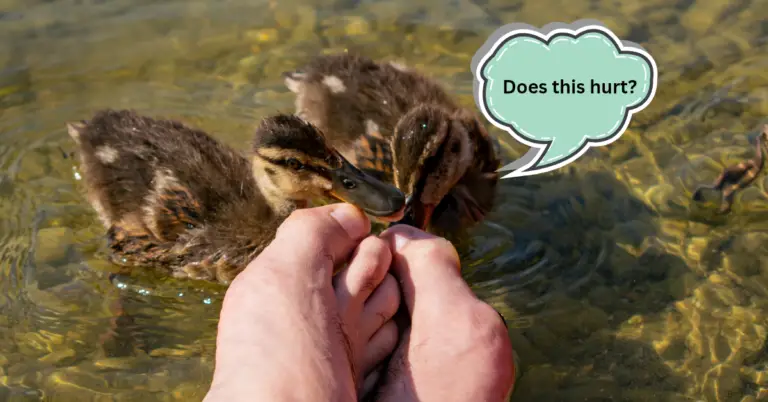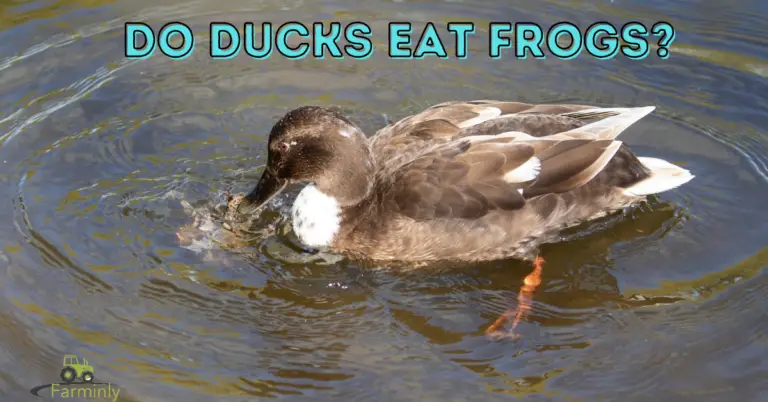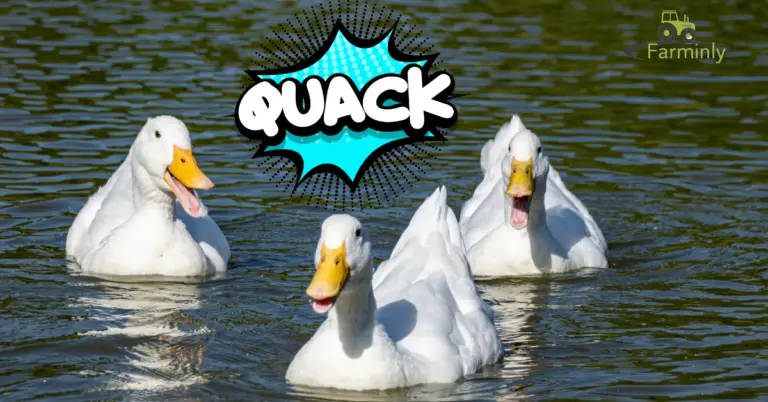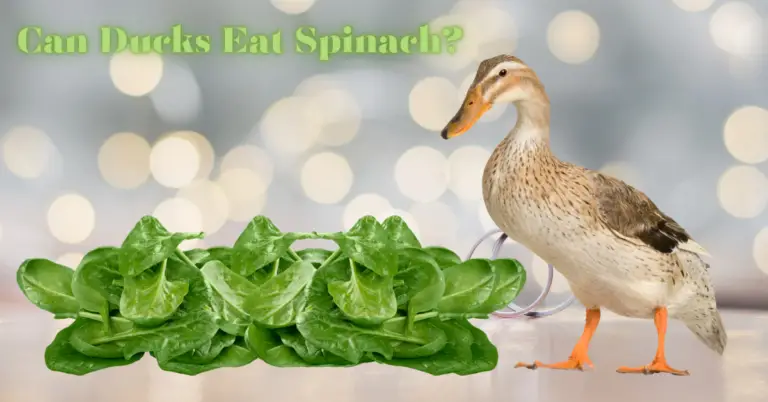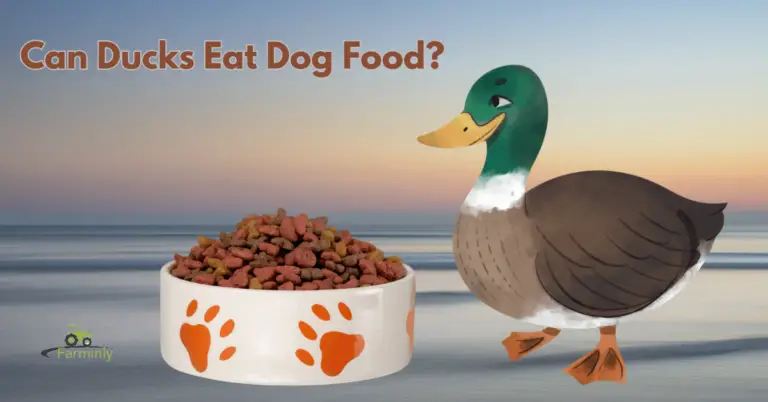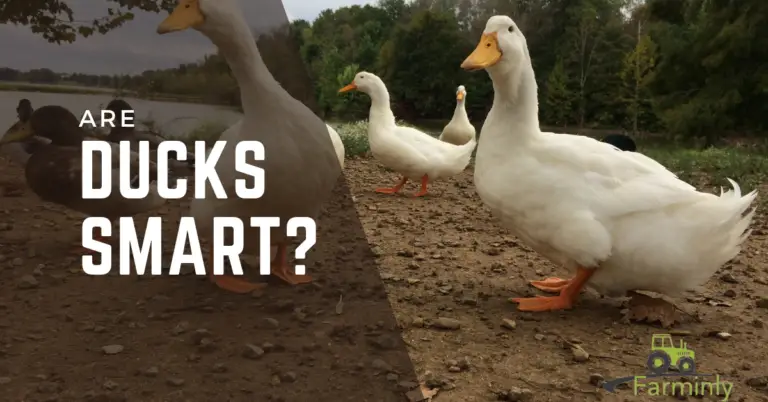Ducks are fascinating creatures with distinctive features and quirky behavior. One of the questions that frequently arises is whether ducks can eat peanuts.
This article will explore whether peanuts are safe for ducks and provide detailed information.
Do Ducks Eat Peanuts?
Yes, ducks can eat peanuts. Peanuts are a popular snack for humans, and many people enjoy feeding them to wildlife such as ducks, squirrels, and birds. Moreover, research shows they are a tasty and nutritious food for ducks.
Ducks are omnivorous animals, meaning that they eat both plants and animals. Their diet includes various foods such as insects, worms, snails, small fish, seeds, grains, fruits, and vegetables.
In the wild, ducks feed on a diverse range of foods that are available in their habitat. However, domesticated ducks may have a more restricted diet, mainly consisting of commercial feed and occasional treats.

Are Peanuts Good for Ducks?
Peanuts are a good source of protein, fat, and fiber. They also contain vitamins and minerals such as vitamin E, niacin, and magnesium. These nutrients can be beneficial for ducks in several ways. That being said, let’s explore the benefits of peanuts to ducks:
1. High in Protein
One of the main benefits of peanuts for ducks is their high protein content. Ducks require a diet that is rich in protein to support their growth, development, and overall health.
Peanuts are a great source of protein, containing approximately 25 grams per 100 grams of peanuts. This makes them an ideal snack for ducks, particularly during periods of high energy expenditure, such as breeding and migration.
2. Rich in Vitamins and Minerals
In addition to protein, peanuts are also a rich source of vitamins and minerals essential for ducks’ health. They are exceptionally high in vitamin E, which plays a vital role in maintaining the health of the duck’s immune system and supporting healthy skin and feathers.
Peanuts are also a good source of thiamine, vital for the duck’s nervous system, and niacin, essential for healthy growth and development.
3. Improves Digestion
Another benefit of peanuts for ducks is that they can help to improve their digestion. Peanuts are high in fiber, which can help to regulate the duck’s digestive system and prevent constipation. This is particularly important during the winter when ducks are more prone to digestive issues due to reduced activity levels.
4. Boosts Energy
Ducks require a lot of energy to maintain their high activity levels, particularly during periods of migration or breeding. Peanuts are a great energy source, containing approximately 570 calories per 100 grams. This makes them an ideal snack for ducks, particularly when they need an extra energy boost.
5. Enhances Feather Quality
Feathers are essential to a duck’s anatomy, providing insulation, waterproofing, and aiding in flight. Peanuts are high in biotin, a B vitamin important for healthy feather growth and maintenance.
Feeding peanuts to your ducks can, therefore, help to enhance the quality of their feathers, making them more resilient and durable.
Risks of Feeding Peanuts to Ducks
While peanuts can provide some benefits to ducks, there are also potential risks that should be considered:
1. Choking Hazard
The main concern with feeding peanuts to ducks is the risk of choking. Peanuts are small, hard, and round, making it difficult for ducks to swallow whole, which makes them a choking hazard for ducks.
If a duck swallows a whole peanut, it can get lodged in its throat and cause a choking and potentially fatal blockage.
2. Salt Content
Salted peanuts should be avoided as they contain high sodium levels, which can harm ducks. Sodium can cause dehydration and disrupt the balance of electrolytes in the body.
3. Aflatoxin
Another issue with feeding peanuts to ducks is the risk of aflatoxin poisoning. Aflatoxins are toxins produced by mold that can grow on peanuts and other nuts.
Aflatoxin poisoning can cause various health problems, including liver damage and even death. While ducks are more resistant to aflatoxins than other animals, it’s still best to avoid feeding them moldy peanuts as a precaution.
How to feed your duck peanuts

If you decide to feed peanuts to ducks, it’s important to take the following precautions:
- Feed ducks in moderation: While it’s fun to feed ducks, it’s important not to overfeed them. Overfeeding can cause health problems such as obesity, harming their overall health.
- Feed ducks in a safe location: Ducks should be fed safely away from traffic and other potential hazards. Feeding ducks in the water is preferable to feeding them on land, as it’s less likely to attract predators.
- Only Feed Unsalted Peanuts: Salted peanuts can harm ducks and should be avoided. Only feed unsalted peanuts in small quantities.
- Crush The Peanuts: To reduce the risk of choking, crush the peanuts before feeding them to ducks. This will make them easier to swallow and digest.
Other Things Ducks Can Eat
Ducks require a varied and balanced diet to meet their nutritional needs. While peanuts can be a nutritious treat, they should not make up a significant portion of their diet. Here are some other foods that are good for ducks:
- Greens: Ducks love to eat leafy greens such as lettuce, spinach, and kale. These greens are rich in vitamins and minerals, including vitamin A, essential for maintaining healthy eyesight.
- Grains: Ducks love grains, which means they can also eat various grains, including cracked corn, wheat, and barley. These grains are high in carbohydrates, which provide energy for the duck’s activities.
- Fruits And Vegetables: Ducks enjoy fruits and vegetables, including apples, carrots, and peas. These foods are rich in vitamins and minerals and can provide a source of hydration. Be sure to cut the fruits and vegetables into small pieces to make them easier for the ducks to eat.
- Insects: Ducks are natural foragers and enjoy eating insects such as worms, snails, and insects. These foods are high in protein and can provide an essential source of nutrition, particularly during the breeding season.
- Pellets: Pellets are commercially produced food formulated explicitly for ducks. These pellets are balanced and complete, containing all the essential vitamins and minerals ducks need to thrive.
In conclusion, peanuts can benefit ducks, but there are also potential risks. Now that you know this, if you decide to feed ducks peanuts, follow the above precautions to ensure their safety. Remember, peanuts should only be a small part of their diet and should not be relied on as a sole source of nutrition.

